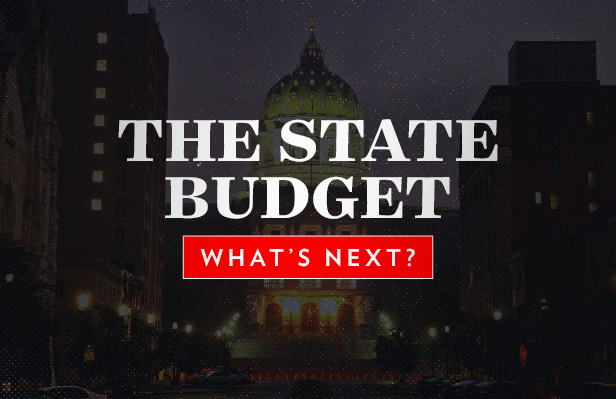Media

Fiscal Code Protects Kids and Jobs
Today, the Pennsylvania House passed a revised fiscal code, HB 1327, to implement parts of the state budget. The fiscal code explains how revenues will be distributed, including transfers between funds.
Here's a look at the good parts of this year's fiscal code; provisions that will protect Pennsylvania jobs, improve how we distribute education dollars, and ensure kids won't have to change schools mid-year.
Reset on Natural Gas Regulations: This month DEP (Department of Environmental Protection) finalized new natural gas drilling regulations that are far more stringent. Cost estimates of the regulations range from an estimated $31 million to $2 billion in the first year. The fiscal code instructs DEP to start all over. It also instructs DEP to begin again with separate regulations for conventional drillers, those that have been drilling shallow wells in Pennsylvania for more than a century.
Legislative Input on Pennsylvania's Clean Power Plan: The fiscal code clarifies the legislature's ability to revise a Clean Power Plan written by the DEP for submission to the EPA (federal Environmental Protection Agency). Lawmakers can vote down the plan, giving DEP 60 days to make changes. The Clean Power Plan is fundamentally an effort to eradicate the use of coal—threatening thousands of Pennsylvania jobs—for a negligible reduction in carbon emissions.
Protecting Scholarships for Kids: The governor waited until Christmas Eve to release Educational Improvement Tax Credit authorization letters that allow businesses to donate scholarships. These scholarships allow thousands of low- and middle-income children to find a better or safer school.
The short time to donate could have dramatically reduced the availability of scholarship for students. Thankfully, the fiscal code allows donations to be retroactively applied, meaning kids won’t lose their scholarships because of Wolf’s delays.
New School Funding Formula: The fiscal code defines that the increase (yes, the increase) in basic education funding shall be distributed according to the new, student-based funding formula developed by a bipartisan committee. (“Hold harmless” would remain, guaranteeing school districts what they received in 2013-14, regardless of enrollment changes).
Likewise, the codes provide a student-based funding formula for the “Ready to Learn Block Grant,” which supports students in all public schools, including charter schools. These funding formulas override the arbitrary way Gov. Wolf planned to dole out the funding increases.
Funding Schools for Construction Costs: The code changes the way the state reimburses public schools for construction projects, through the PlanCon program. The legislation authorizes the Commonwealth Financing Authority to issue up to $2.5 billion in bonds (and more, if such a need is determined) to reimburse schools for construction projects.
This essentially moves PlanCon from the General Fund to a capital project (with interest on the bonds to be paid in future budgets). This shifts provides more funding to schools this year; which is why Gov. Wolf’s claim about “$95 million in cuts to public schools” is a complete lie.